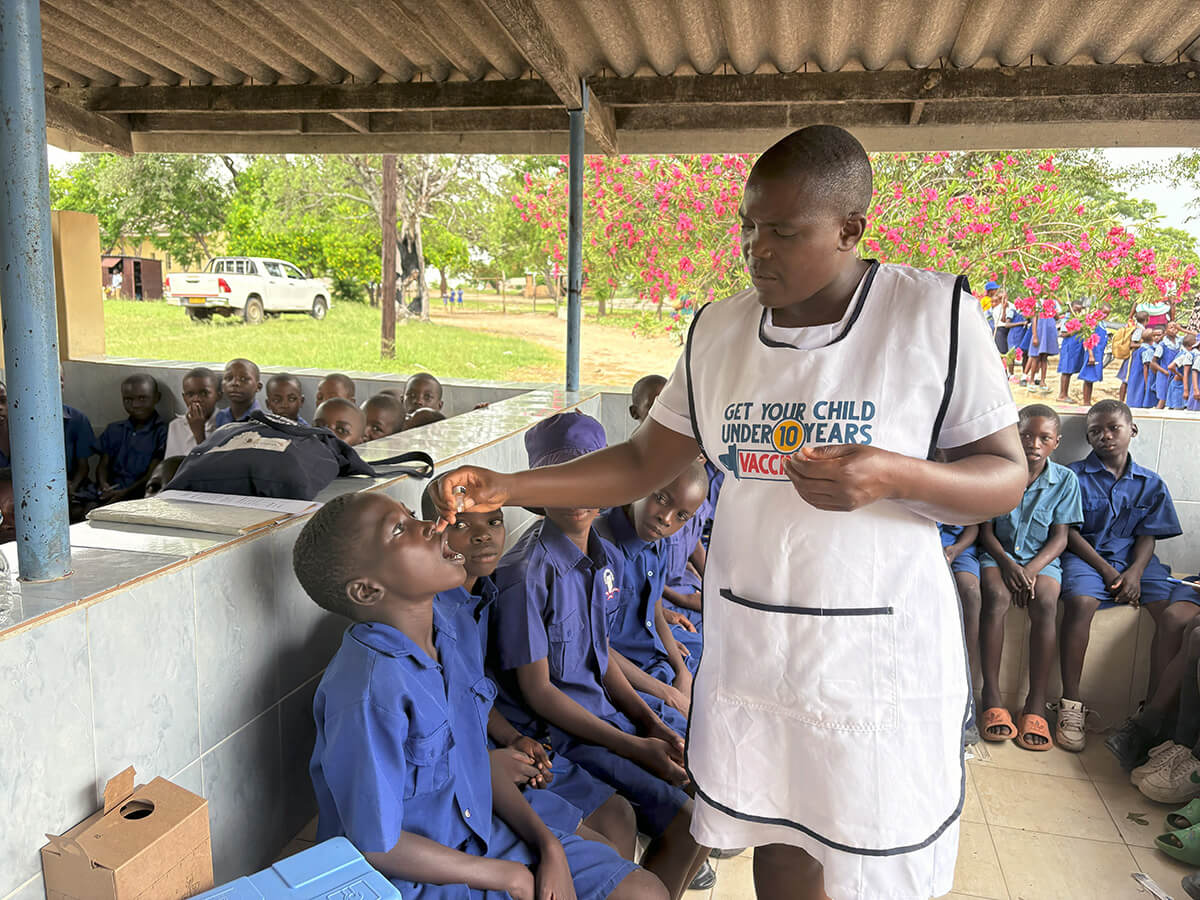Key points:
- The Nyadire Connection in the Western Pennsylvania Conference funded the revitalization of five satellite clinics under Nyadire Mission Hospital.
- The United Methodist Board of Global Ministries, through its Global Health program, has supported the Zimbabwe Episcopal Area by developing infrastructure and providing modern equipment.
- Zimbabweans in the U.K. and Australia and New Zealand mission areas also support the church to become a health service provider of choice.
Support from partners across the United Methodist connection has improved services and infrastructure at church mission hospitals and clinics in the Zimbabwe Episcopal Area over the past decade.
All six clinics under the United Methodist Nyadire Mission Hospital were rebuilt at a total cost of over $2 million by The Nyadire Connection, a group of volunteers from Pittsburgh in the Western Pennsylvania Conference, and the United Methodist Board of Global Ministries.
The church facilities were reconstructed to match standards set by the Zimbabwe Ministry of Health and Child Care for rural health facilities. However, the new spacious facilities are now viewed as “hospitals” by those seeking medical attention.
“Patients who have been treated at other clinics sometimes come to our clinic when they are referred to hospitals for specialist attention,” said Belinda Shoko, sister-in-charge of Dindi United Methodist Clinic, which was rebuilt by Global Ministries in 2022.
Patients believe the bigger facilities mean the clinic was upgraded to offer services available at hospitals.
“We have separate rooms for consultations, immunizations, antenatal, postnatal and wards for pediatrics, men and women. We can monitor patients in the wards while waiting for them to be transferred to the district hospital at Mutawatawa,” she said.
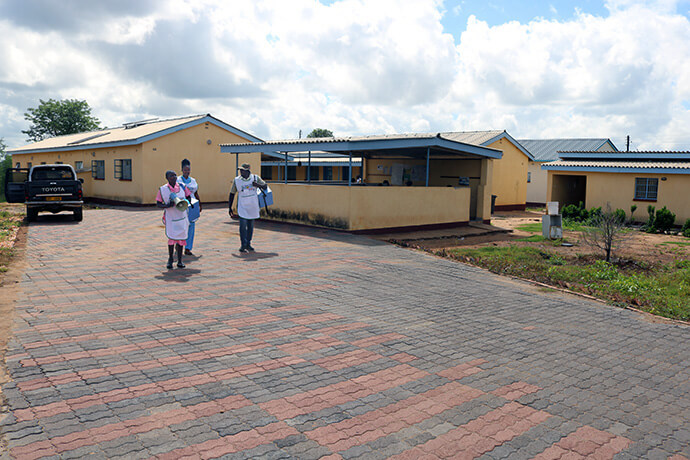
Dindi Mission clinic offers free services and caters to a population of over 8,000 people from surrounding villages. However, the waiting mothers’ home rarely has any residents. “We handle 15-20 deliveries every month, but very few women reside at the clinic before delivery. Some deliver at home with assistance of traditional midwives or simply turn up at the clinic in labor without having registered or attended antenatal checkups,” Shoko explained.
Waiting mothers’ shelters are a key feature of rural health facilities in Zimbabwe. They are homes where expecting mothers can stay from 36 weeks of pregnancy in order to be within reach of medical attention. This is important for women with high-risk pregnancies whose homes may be far from the health center with poor roads, rugged terrain and no public transport. The shelter at Dindi can accommodate 20 expecting women.
Reasons for admission into a shelter at hospitals include previous complications or cesarean section deliveries, underlying chronic conditions, multiple pregnancies, and abdominal or pelvic surgery.
Common ailments treated at the clinic include acute respiratory tract infections, injuries, eye diseases, skin infections and diarrhea. An opportunistic infections clinic has over 470 clients on anti-retroviral treatment.
The upgrading of United Methodist clinics has resulted in higher numbers of patients seeking medical treatment. People generally believe they will get better service at a church institution, and they trust the staff. Mashambanhaka UMC Clinic is located about 120 kilometers (about 75 miles) from Zimbabwe’s capital, Harare, and some of the city residents prefer to get treatment at the clinic.
Patience Shayamano, the sister-in-charge of Mashambanhaka, said the new clinic is well organized, spacious and offers privacy for patients, helping maintain their confidentiality. The clinic was dedicated in November 2022.
“The rooms are bigger, airy and well ventilated. This is good as it reduces the risk of us getting exposed to infectious diseases.”
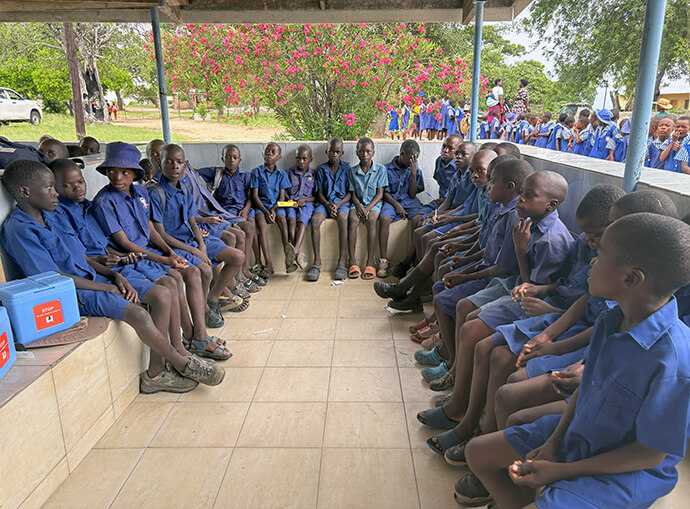
United Methodist clinics are a strategic partner for the government’s health care programs. Mashambanhaka was designated as a site for admission and treatment of cholera cases. In February, one patient was admitted in the cholera ward.
“We had two cholera cases in February; they were not local residents. Our clinic was assigned to treat cholera because we have plenty of water and also space to handle infectious diseases,” said Shayamano.
Read related story
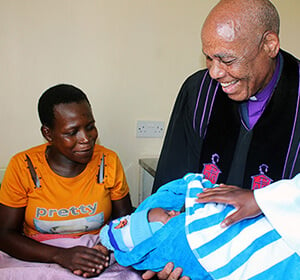
Through faith, perseverance and dedication, The Nyadire Connection’s dream of renovating rural health centers in Zimbabwe became reality with the completion of the sixth and final Nyadire Mission Hospital clinic, Chindenga clinic in Mutoko.
Mashambanhaka, Dendera, Chikwizo, Nyahuku and Chindenga clinics were rebuilt by The Nyadire Connection over the past decade, with each clinic costing about $350,000. Chindenga was the last clinic to be reconstructed and dedicated in February. Villagers contributed to the rebuilding of clinics by providing local materials such as stones, sand and water for the construction.
Bel-Air United Methodist Church in the Baltimore-Washington Conference partnered with Old Mutare Hospital to revitalize one of its clinics, Munyarari, located near Mutare. From a small makeshift clinic operating in a six-room teacher’s house, the clinic now boasts of facilities that can rival any modern rural health center in Zimbabwe. The new facility, which is the first of six clinics under Old Mutare Hospital to be rebuilt, was dedicated in February last year.
The clinic revitalization program included provision of adequate safe water and staff accommodation, which resulted in several duplexes being built.
Nyasha Vidade, a nurse aide who has worked at Dendera Clinic since 2014, said they now have bigger and separate working space for different uses. Two duplex houses were constructed while three old houses were renovated to ensure staff had comfortable residences.
Bernard T. Mwashita, who chairs the Zimbabwe Episcopal Area Health Board, said Global Ministries, The Nyadire Connection and many other global partners contributed significantly through the health-strengthening systems and hospital and clinics revitalization programs.
“Our infrastructure at the satellite clinics under Nyadire and Old Mutare UMC Mission hospitals has been upgraded, and state-of-the-art equipment … was installed in all our three hospitals,” Mwashita explained.
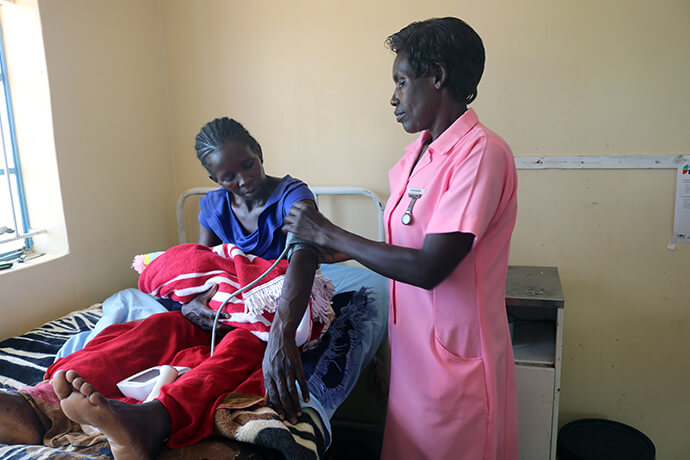
Mutambara UMC Mission Hospital serves as a referral health facility for the Chimanimani District and won the Baby Friendly Initiative Award in 2015, resulting in its baby-friendly policy being used by the government as a model for the whole country.
“It is pleasing to note that diagnostic equipment and testing equipment improve on time and efficiencies in treating patients as onsite diagnoses and testing are more direct and accurate. There is also a huge time and cost saving for both the patient and institutions, which saves lives due to early and accurate treatment of patients,” Mwashita told UM News.
Scenes from church’s rural health clinic
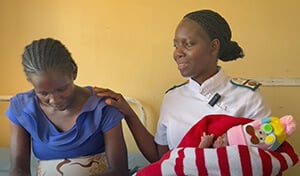
The United Methodist Church’s Chikwizo rural health clinic recently hosted an immunization clinic to vaccinate children ages 10 and younger against polio. Eveline Chikwanah and Lilla Marigza have a video. Watch video
Expectant mothers come to live at the Chikwizo waiting mothers’ shelter in the last days of pregnancy so that labor, delivery and recovery can happen under the care of clinic staff. Eveline Chikwanah and Lilla Marigza have a video. Watch video
“Since we serve in the remote areas of Zimbabwe, our clinics are now better equipped, making them the preferred clinic of choice. Access to health care for all is improving per capita as improved health care is now close to home with better equipped hospitals, clinics and facilities,” he said.
Zimbabweans in mission areas also have partnered with the Zimbabwe Episcopal Area, so that it provides better care at its health centers. Last year, United Methodists from Australia and New Zealand shipped a 20-foot container with an assortment of medical equipment, including modern hospital beds, linen, surgical gowns, masks and life-monitoring equipment as well as drugs.
This year, members in the United Kingdom donated diagnostic equipment worth over US $10,000, drugs and refrigerators, which have been distributed to the health institutions.
Old Mutare Mission Hospital now boasts of spacious facilities and state-of-the-art equipment funded by Global Ministries. Infrastructure, including the waiting mothers’ shelter and its cooking and bathing facilities, a new kitchen with modern gas cooking appliances, main hospital building housing outpatients, radiology, pharmacy and other departments, were built with support from Global Ministries’ Global Health program. A new operating theater is under construction.
In 2022, Global Ministries provided the hospital with equipment, including an X-ray machine and a Gene Xpert multitask machine, which is used in laboratory tests for tuberculosis, COVID, HIV viral load, early infant diagnosis for HIV-exposed babies and multidrug-resistant TB.
Charles Mbizi, a laboratory technician at the hospital, said previously most tests were referred to Mutare, about 20 kilometers away. “Now we test samples from facilities in Mutare and also from health centers as far as Checheche (about 250 kilometers away).”
Bishop Eben K. Nhiwatiwa, who led the Zimbabwe Episcopal Area from 2004 until his retirement in March of this year, presided over the dedication of Chidenga clinic in February.
He touted the partnerships and management of the projects over the years.
“Little did we know that God was leading us to something which was going to be this big and very transformative.”
Chikwanah is a UM News correspondent based in Harare, Zimbabwe.
News media contact: Julie Dwyer at (615) 742-5470 or [email protected]. To read more United Methodist news, subscribe to the free UM News Digests.

